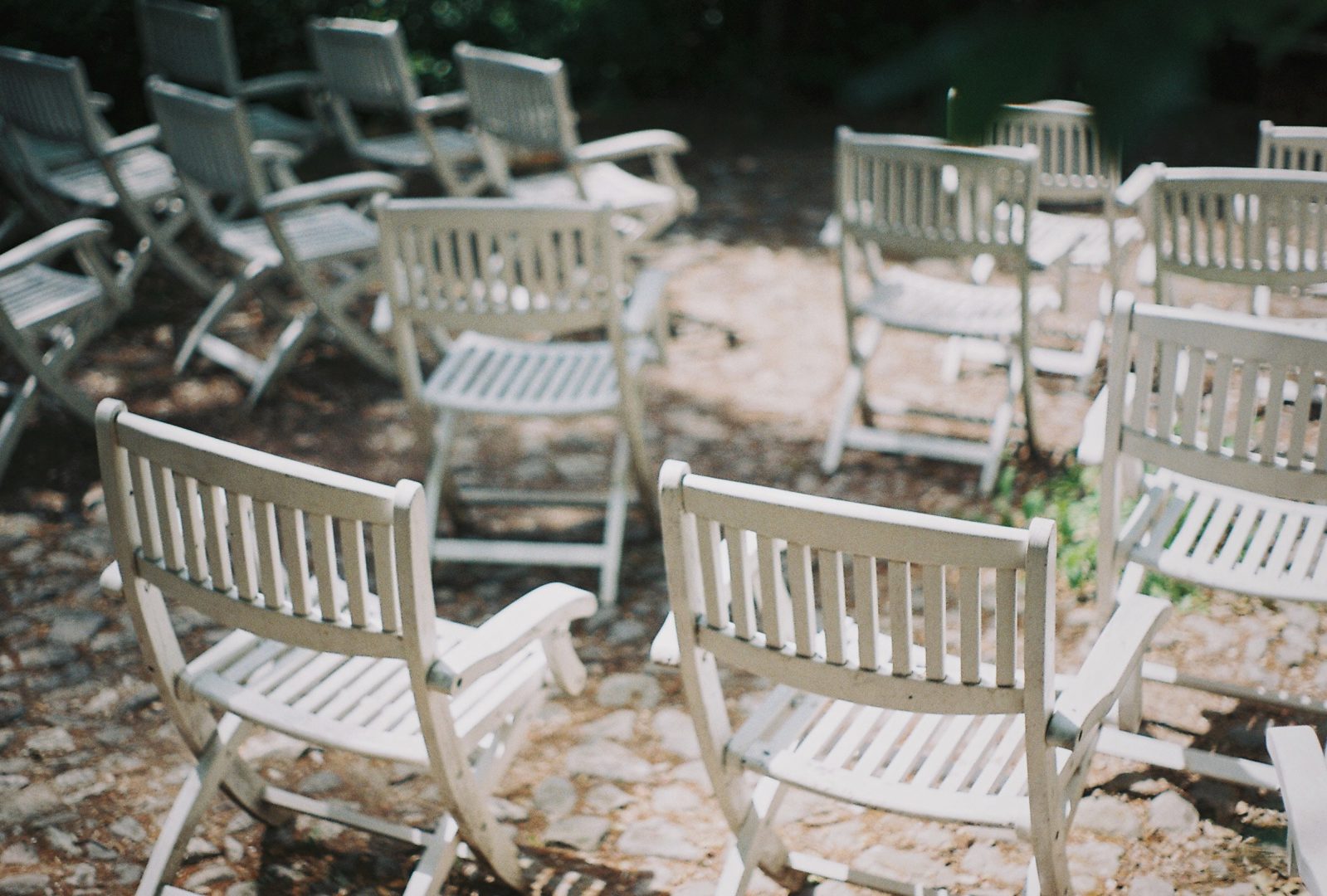
Whether for business or pleasure, events require careful planning, attention to detail and focus on the right priorities. Finding the right venue can make or break an event, so it's important that you find the perfect venue to house your event. But how do you find the perfect event venue?
The concept of the perfect event venue may currently seem out of reach and unrealistic, but with this 10-step guide, you are guaranteed to find the right venue for you. So, although finding the perfect venue will always take time, it doesn’t always have to feel overwhelming.
Quick Reads
Cost

Your budget will be one of the biggest considerations that you will have to take into account when finding an event venue. A price range will immediately limit which venues you can use for your event. You should be aware of the limitations of your financial resources from the get-go so that you’re not tempted to overspend if you see a venue that is perfect, but out of your price range. Remember your budget has to cover more than just your venue, so overspending here will mean that you have to compromise on another aspect of your event.
However, if you can be flexible on the date of the event, don’t be afraid to negotiate. Certain days of the week usually cost less than others, so with date flexibility comes the possibility of a cheaper price.
Finally, always make sure that you confirm all agreed times, dates, costs and any other details in a written contract.
Capacity
Venue capacity is another important factor to consider when choosing an event space. An event of 500 people would not fit comfortably in a venue that only holds 300, not to mention there are fire and safety codes that the venue has to abide by. So, be sure to find a venue that will comfortably fit your expected audience.
If you are holding an event that accepts not only pre-registered guests but also walk-in guests, it’s always better to overestimate your capacity than underestimate. Should you be expecting 200 guests, it would be wise to find a venue with a capacity of 250 to 300 guests. Another option for walk-in events are venues with breakout rooms. These are separate rooms that can be used if the number of people exceeds the capacity of the main area. Although not ideal, it is possible (with the right planning and equipment) to stream the main event to these breakout rooms.
Location and Accessibility
When it comes to location, convenience is key. If the location of the event is inconvenient, be that in terms of price or travel distance, potential attendees may be dissuaded from attending the event. For a local event, you’ll want to look for a venue within a reasonable distance from most attendees’ homes, but for an event that requires people to travel further afield, a venue near their hotels or the airport would be ideal. Of course, you will have chosen the venue before you know where people will be staying, so to help out your potential attendees you could give them recommendations on hotels and accommodation near to the venue.
Accessibility is also another important factor to consider when finding an event venue. For some events you won’t yet know who your attendees are, but if you have booked similar events before you can check previous attendees’ requirements and perhaps use this to assess what kind of accessibility you may need for your coming event. An accessibility requirement that you may need to consider is wheelchair access.
Fortunately for you, venue search engines are the perfect tool for finding the perfect venue worldwide as well as the top conference destinations.
Transportation and Parking

Another aspect to take into consideration is transport links to and from the event venue. Is it easily accessible by public transport? If not, you will have to think of other means of transporting your guests to and from the venue (which could become an additional, unnecessary cost). However, if it is easily accessible by public transport, remember to provide your attendees with information on how to find the venue.
You will also have to inquire whether the venue provides parking as, in most cases, a large majority of attendees will drive to the venue. If there isn’t parking, be sure to research the surrounding areas for car parks that can be used by your attendees.
WiFi Capabilities
WiFi connectivity is a must for most any event, both for the host and the attendees. As the host, you will need WiFi for multiple purposes. These purposes may include streaming video, checking-in guests and social media uses, to name a few, so it’s vital that you have a fast and secure WiFi connection. The best venues will have dedicated WiFi access for you and your guests, but this is something you should inquire about in order to be certain. The WiFi speed also matters, so be sure to ask the venue about their speeds and if they would allow you to test the speed of their network to be sure.
Amenities

Different venues are able to provide different levels of services and facilities, so it’s important when booking your venue that you make sure they can cater to your specific needs. Amenities you may want to consider inquiring about include:
-
- A/V Equipment
- Tables and Chairs
- Catering
- Set-up/clean-up crew
All of these services can be provided by outside sources, but if your prospective venue offers them, you may be able to get a packaged deal that saves you money and the hassle of trying to organize different services through separate companies.
Ambiance and Style
In order to find the perfect event venue, you need to define the style and ambiance of your event. This will help you to understand the type of venue that would best suit your event. The more the ambiance matches the desired feeling of your event, the less decorating you’ll need to do to achieve the right atmosphere. Therefore, when you are choosing your venue take note of its ambiance and consider whether it matches the desired style of your event.
Layout

Although simple and easily skipped over, the layout of your event is key to making it memorable. Depending on the type of event you are organizing you may want different layouts, so you’ll want to have a rough idea of what activities you will be hosting and what layout these activities may require. Depending on the activities you have planned, you could choose a boardroom, lecture space, dining layout or any other layout that suits your event. Many venues are flexible with the layout of their rooms and can adapt to different types of events, but even so, you’ll want to get a floor plan of the venue and a confirmation that they are able to provide your desired layout.
Check out our blog 7 Event Room Layouts that Encourage Networking for more ideas on what layout would be the right one for your event.
Insurance
Insurance may not be something you would consider a necessity when finding a venue, but some venues will refuse to do business with you if you don’t have insurance. Certain venues require a set amount of liability as well as being named as additional insured for the event before agreeing to host your event. Therefore, you should get an endorsement for your event from your insurance agent before starting your venue search so you don’t experience unexpected delays that could put you behind schedule.
Timeframe

The sooner you start looking for your venue the better. You’ll first need to know these three things; your budget, an estimated event size, and space requirements. Once you have an approximate idea of these three things you can start searching for your venue. Beginning your search well in advance of your event will give you a far larger selection of venues. This is because venues are less likely to have already been booked for your preferred date, and furthermore, the cost of the venue will be significantly lower.
You should book your venue at least 4-6 months in advance to allow yourself sufficient time to organize other aspects of the event and allow for any potential unexpected delays.
Our Event Planning Guide will help you make the whole process less time consuming with an easy to follow step-by-step guide to planning a memorable event.
Back to You
Although finding the perfect event venue will always take time, with clear goals in mind and a clear idea of what you need to focus on, it can be an enjoyable endeavor, not to mention, a rewarding one. The feeling you get when you know that you have found the perfect venue will make this long and arduous process worth it. So with that in mind, hopefully this guide to finding the perfect event venue will make finding the right venue for you an easier and more enjoyable task.
As important as it is to find your perfect event venue, always remember there are other factors that are key to hosting the perfect event. You will need to make sure your event is well-marketed, you have an efficient ticketing and check-in system and you are easily able to manage your attendees. Glue Up is a platform that helps you do all of this. Click here to learn how Glue Up has created an all-in-one solution for event planning and management needs.
Interested in pairing up your event space with a sleek check-in experience? Book a Demo and find out how!



